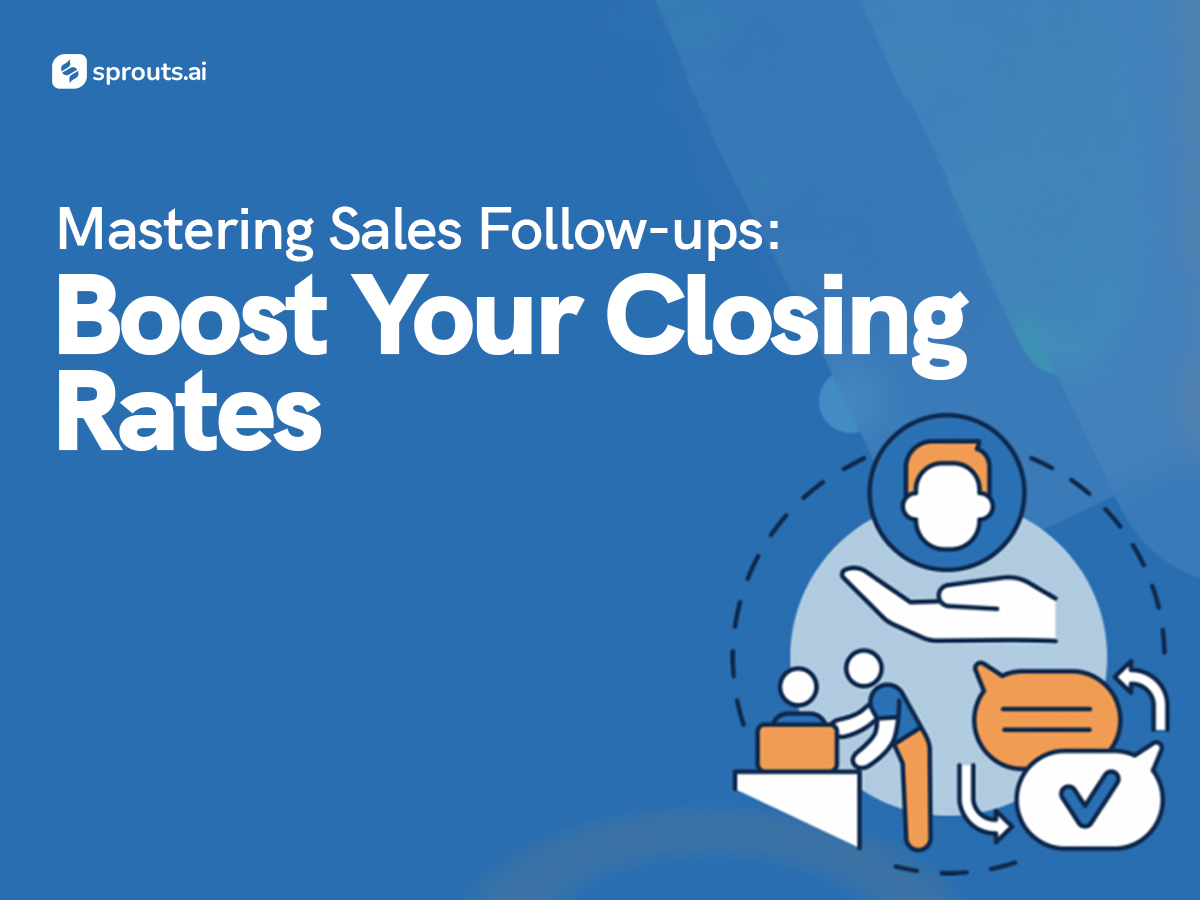Salespeople often wear the badge of persistence. But what truly separates the closers from the rest? Their skill of follow-ups. Consistent and strategic follow-up is the engine that drives sales success, transforming lukewarm interest into enthusiastic “yeses.” This blog will empower you with the tools you need to master this art, featuring proven strategies, techniques, and best practices to turn persistence into sales victories.
Understanding the Importance of Sales Follow-ups
Sales follow-ups are crucial for several reasons:
- Building Relationships: Follow-ups provide an opportunity to nurture relationships with potential customers. By staying in touch, you demonstrate your commitment to their needs and build trust over time.
- Addressing Objections: Follow-ups allow you to address any objections or concerns the prospect may have. By actively listening and responding to their feedback, you can overcome objections and move closer to a sale.
- Staying Top of Mind: Staying top of mind is crucial. Regular follow-ups ensure that your product or service remains front and center in the prospect’s mind, increasing the likelihood of a sale.
- Closing the Deal: Many sales are lost simply because the salesperson failed to follow up. Following up at the right time with the right message can be the difference between closing the deal and losing it to a competitor.
Crafting Effective Follow-up Strategies
To master sales follow-ups, it’s essential to develop effective strategies tailored to your target audience and sales process. Here are some key strategies to consider:
- Set Clear Objectives: Before reaching out to a prospect, define your objectives for the follow-up. Whether it’s scheduling a demo, addressing objections, or closing the sale, clarity on your goals will guide your approach.
- Personalization is Key: Generic follow-up messages are easily ignored. Personalize your follow-ups by referencing previous conversations, mentioning specific pain points, or offering customized solutions.
- Timing is Everything: Timing plays a critical role in follow-up success. Pay attention to the prospect’s buying cycle and reach out at strategic intervals. Avoid being too aggressive or too passive; find the right balance based on the prospect’s responsiveness.
- Multichannel Approach: Experiment with various communication channels, including email, phone calls, social media, and in-person meetings. Different prospects may prefer different channels, so diversifying your approach increases your chances of connecting.
- Provide Value: Every interaction with a prospect should add value. Share relevant resources, insights, or industry trends that demonstrate your expertise and position you as a trusted advisor.
- Be Persistent but Respectful: Persistence is key in sales, but it must be accompanied by respect for the prospect’s time and preferences. If a prospect indicates disinterest or requests not to be contacted further, honor their wishes while leaving the door open for future opportunities.
Leveraging Technology for Enhanced Follow-ups
Technology can streamline the follow-up process and improve efficiency. Here are some ways to leverage technology for enhanced follow-ups:
- CRM Systems: Invest in a robust Customer Relationship Management (CRM) system to track interactions, set reminders, and automate follow-up sequences. CRM software enables you to stay organized and maintain a comprehensive view of each prospect’s journey.
- Email Automation: Use email automation tools to send personalized follow-up messages at scale. Schedule follow-ups based on triggers such as opened emails, clicked links, or specific actions taken by the prospect.
- Sales Engagement Platforms: Explore sales engagement platforms that offer features like email tracking, call recording, and analytics. These platforms provide valuable insights into prospect behavior and help optimize follow-up strategies accordingly.
- Social Selling Tools: Leverage social selling tools to monitor prospects’ social media activity and engage with them in relevant conversations. Social media platforms offer additional touchpoints for follow-ups and relationship building.
Overcoming Common Follow-up Challenges
Despite the benefits of follow-ups, sales professionals often encounter challenges along the way. Here are some common challenges and tips for overcoming them:
- Dealing with Ghosting: Ghosting occurs when a prospect suddenly stops responding to follow-up attempts. In such cases, try sending a brief, non-intrusive follow-up acknowledging their silence and reiterating your willingness to help.
- Handling Objections: Objections are a natural part of the sales process. When faced with objections, listen attentively, empathize with the prospect’s concerns, and address them with confidence and relevant information.
- Managing Follow-up Fatigue: Sales follow-ups can be mentally exhausting, especially when met with repeated rejections. Take breaks, practice self-care, and maintain a positive mindset to prevent burnout and stay motivated.
- Adapting to Remote Selling: The shift to remote selling presents unique challenges for follow-ups. Utilize video conferencing, screen sharing, and virtual demos to maintain engagement and effectively communicate with prospects remotely.
Measuring Follow-up Success
Tracking and measuring the success of your follow-up efforts is essential for continuous improvement. Here are some key metrics to monitor:
- Response Rate: Measure the percentage of prospects who respond to your follow-up attempts. A high response rate indicates effective communication and engagement.
- Conversion Rate: Track the percentage of follow-ups that result in a desired outcome, such as a meeting scheduled or a sale closed. Monitoring conversion rates helps identify areas for optimization in your follow-up process.
- Time to Close: Analyze the time it takes to close deals after the initial contact. Shortening the sales cycle through timely follow-ups can lead to increased efficiency and revenue.
- Customer Feedback: Solicit feedback from prospects regarding their experience with your follow-up process. Use their input to identify areas for improvement and refine your approach accordingly.
Mastering sales follow-ups is a vital skill for any sales professional looking to boost their closing rates and achieve greater success. By understanding the importance of follow-ups, crafting effective strategies, leveraging technology, overcoming challenges, and measuring success, you can optimize your follow-up process and drive more sales. Remember, persistence, personalization, and value are the keys to successful follow-ups that ultimately lead to closed deals and satisfied customers.

